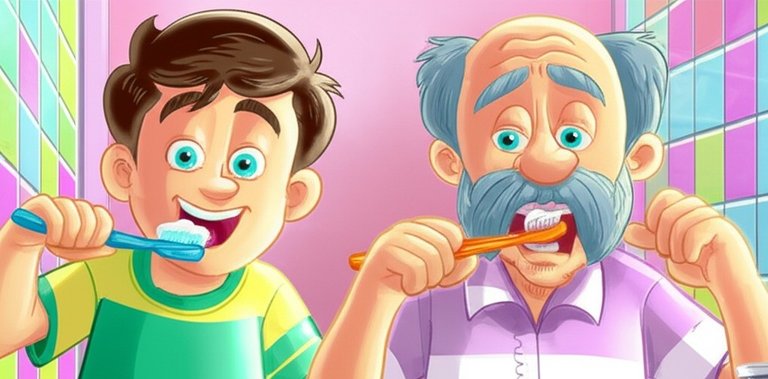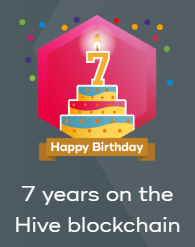[Esp./Eng.] Ponte La Plancha. || Put on the iron.
If you prefer the English version, click on the following link 👉 HERE
Ponte La Plancha.
El tiempo, ese río incesante que arrastra los ayeres convirtiéndolos en memorias entrañables, me trae hoy el recuerdo vívido de mi sobrino Maykol. Le conocí cuando apenas sumaba diez primaveras a su existencia; un chiquillo despierto y curioso, el segundo retoño de mi hermano Henry. Hoy, Maykol es un hombre de veintinueve años, y al evocarlo, siento cómo el almanaque se deshoja con vertiginosa celeridad.
Fue durante una de esas visitas, una semana que se grabó a fuego en mi recuerdo, cuando ocurrió la anécdota que hoy desempolvo. La escena nos sitúa en el humilde santuario del baño, bajo la luz que preludiaba el descanso nocturno. Estábamos inmersos en el ritual vespertino del cepillado dental. Yo, fiel a mi costumbre casi monacal de mantener la pasta dentífrica emulsionada en mi boca por un lapso no menor a cinco minutos —un pequeño capricho personal para, según yo, potenciar su efecto—, tomé el cilindro de crema y deposité una generosa porción sobre las cerdas del cepillo de Maykol.

Cortesía de AISTUDIO
Comenzamos la faena al unísono, el suave rasgueo de los cepillos creando una efímera sinfonía higiénica. Terminé mi parte del ritual primero, dejando mi cepillo en su sitio, cuando noté que Maykol, con su cepillo aún en mano y la boca espumosa como nube de algodón, me observaba con una fijeza inusitada, sus ojillos brillantes de genuina perplejidad. Entonces, con la inocencia aplastante de sus diez años, soltó la pregunta que detonaría mi carcajada interna: “Tío, ¿usted no se saca la plancha para cepillarla?”.
Su observación, aguda como un bisturí infantil, me tomó por sorpresa. Entre risas contenidas, le expliqué pacientemente que mi dentadura era completamente natural, un tesoro óseo original de fábrica, y que de las treinta y dos piezas que suelen adornar la boca de un adulto, yo conservaba treinta, ¡firmes como robles! El pequeño Maykol, con la lógica irrefutable de su corta experiencia, replicó que no conocía a ningún “señor mayor” —así me percibía él, claro está— que no recurriera a la “plancha”. Y aquí hago un inciso para los no iniciados en los venezolanismos de antaño: “plancha” era el término coloquial y entrañable con el que se designaba a la dentadura postiza. Hoy, como bien me actualizó mi hermano, el término se ha refinado a un más técnico “prótesis dental”, perdiendo quizás algo de aquel sabor popular.
Y como un epílogo que el tiempo mismo ha escrito, hoy, tras el desfile de casi siete calendarios desde que esta anécdota volvió a mi mente con la frescura de lo recién vivido. Aquellas treinta piezas dentales siguen allí, intactas, desafiando el paso de los años…
Ven y participa, aún estás a tiempo. Toda la información la podrás encontrar cada día en la Comunidad #Freewritehouse. Específicamente, el día de hoy, aquí la publicación del prompt:
«dentadura postiza»

Portada de la iniciativa.

Dedicado a todos aquellos que, día a día, con su arte, hacen del mundo un lugar mejor.


Time, that incessant river that carries away yesterdays, transforming them into cherished memories, brings back vivid memories of my nephew Maykol. I met him when he was barely ten years old; a bright and curious boy, the second child of my brother Henry. Today, Maykol is a twenty-nine-year-old man, and when I recall him, I feel the calendar flipping with dizzying speed.
It was during one of those visits, a week that was seared into my memory, that the anecdote I'm dusting off today occurred. The scene places us in the humble sanctuary of the bathroom, under the light that heralded the night's rest. We were immersed in the evening ritual of brushing our teeth. I, faithful to my almost monastic habit of keeping the emulsified toothpaste in my mouth for no less than five minutes—a little personal indulgence, to, I thought, enhance its effect—took the cylinder of cream and placed a generous amount on the bristles of Maykol's toothbrush.

AISTUDIO
We began the task in unison, the soft strumming of the brushes creating an ephemeral hygienic symphony. I finished my part of the ritual first, putting my toothbrush back in its place, when I noticed that Maykol, still holding his toothbrush and his mouth foaming like a cloud of cotton, was staring at me with unusual intentness, his little eyes shining with genuine perplexity. Then, with the overwhelming innocence of his ten years, he asked the question that would trigger my inner laughter: “Dude, don't you take out your flat iron to brush your teeth?”
His observation, sharp as a child's scalpel, took me by surprise. Between stifled laughs, I patiently explained that my teeth were completely natural, a treasure of original bone from the factory, and that of the 32 teeth that usually adorn an adult's mouth, I still had 30, as firm as oak trees! Little Maykol, with the irrefutable logic of his young age, replied that he didn't know any “older gentleman”—that's how he perceived me, of course—who didn't resort to the “plancha” (a type of brace). And here I'll make a digression for those uninitiated in the Venezuelan expressions of yesteryear: “plancha” (a type of brace, not an Iron.) was the colloquial and endearing term used to designate false teeth. Today, as my brother so aptly updated me, the term has been refined to a more technical “dental prosthesis,” perhaps losing some of that popular flavor.
And like an epilogue that time itself has written, today, after the parade of almost seven calendars, since this anecdote returned to my mind with the freshness of what had just been experienced. Those thirty teeth are still there, intact, defying the passage of time…
Come and participate, there's still time. You can find all the information daily in the #Freewritehouse Community. Specifically, today's prompt post:
«false teeth»

Cover of the initiative.

Dedicated to all those writers who contribute, day by day, to making our planet a better world.

